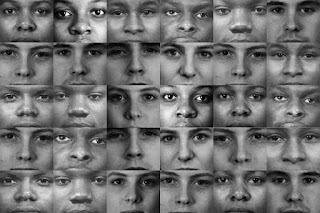This week we are primarily looking at the role of religion within the landscape of racial and ethnic politics in the United States. There are many who argue that religious minorities face the same challenges and have the same political opportunities as racial and ethnic minorities. While religious discrimination has existed in America at least as long as racial discrimination, it does not fit neatly into the discussion of racial or ethnic politics. Religion has clearly guided political decisions in this country at least as much, if not more, than race or ethnicity. However it remains heavily debated as to whether religious identification is merely as aspect of culture or one connected to and influenced by race and ethnicity.
Take a look at some interesting findings regarding the breakdown of different religious groups in the United States in this summary of findings from the Pew Forum on Religion and Public Life.
I would like to leave this blog post fairly open ended. To that end please respond to the questions below or more generally to the theme at hand and to the comments of your classmates.
- Do religious minorities face the same political challenges that racial and ethnic minorities face?
- What does your answer suggest about potential strategies that might be used by religious, ethnic, or racial minority groups in order to improve their political or social standing?

